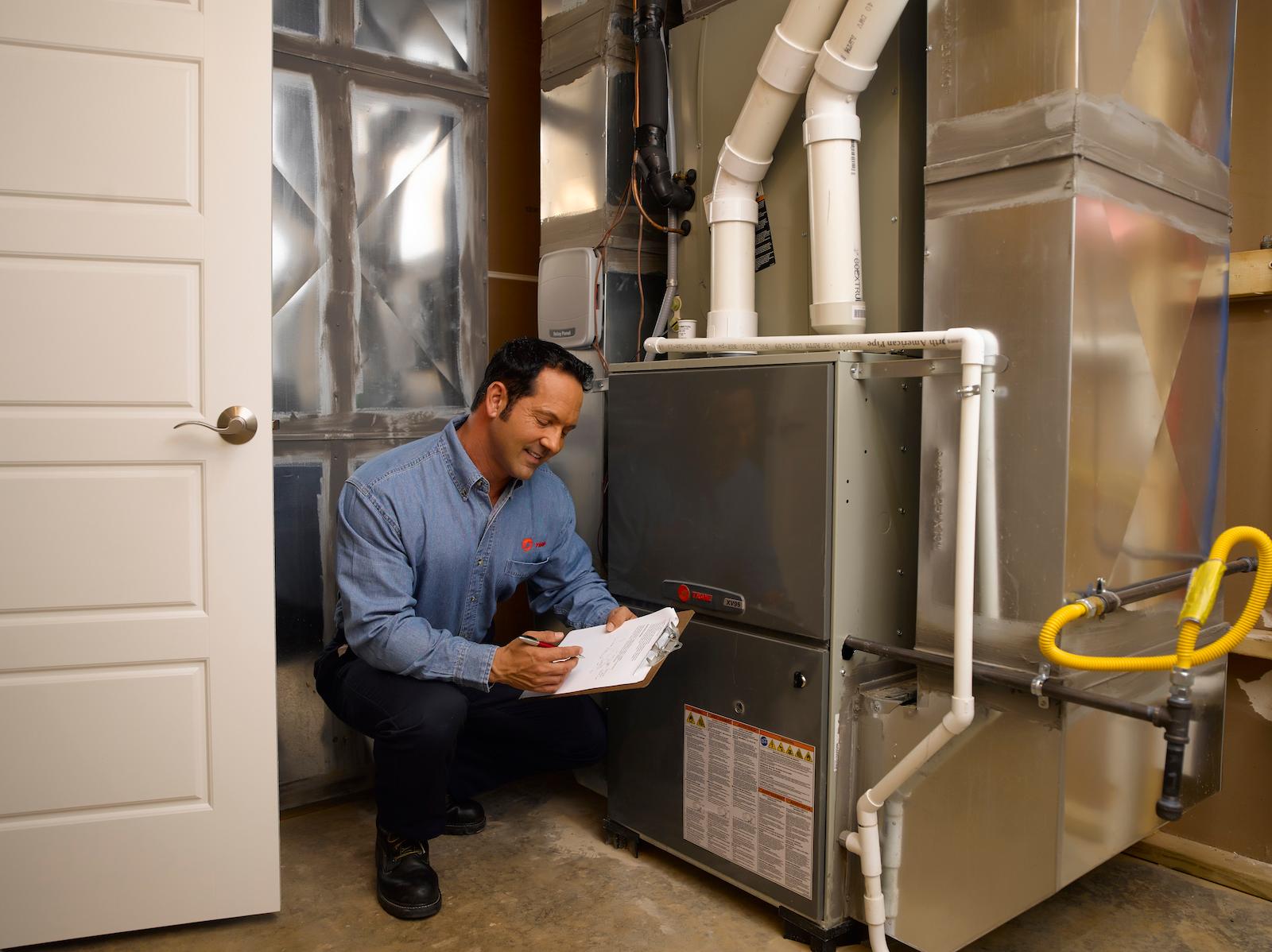How to Save Money This Winter on Your Heating Bill: Winter Energy-Saving Tips
As winter settles in, the comfort of a warm home often comes at the cost of increased energy consumption and higher heating bills. For homeowners, finding effective strategies to combat the winter chill while keeping utility expenses in check is a top priority.
Explore a range of winter energy-saving tips, covering everything from cutting-edge heating systems to practical behavioral changes.
Ways to Save Energy at Home and Reduce Your Winter Heating Bill
Energy-Efficient Heating Systems
The cornerstone of winter energy efficiency lies in the choice of your heating system. Embracing the latest advancements in energy-efficient heating technologies can lead to substantial long-term savings and environmental benefits.
Here are some key elements to consider when trying to lower your winter heating bill:
Smart Thermostats
Smart thermostats have revolutionized the way we control indoor temperatures. These devices learn your heating patterns and preferences, allowing for precise temperature control. Some models even adapt to external weather conditions, optimizing energy usage. By investing in a smart thermostat, homeowners can experience both enhanced comfort and notable reductions in energy consumption.
Programmable Controls
Programmable controls provide an additional layer of customization. They allow users to set different temperature schedules for various times of the day or week. For example, you can lower the temperature when you're away from home and increase it when you return. This level of control ensures that energy is not wasted when it's not needed, contributing to significant cost savings.
High-Efficiency Furnaces
Upgrading to a high-efficiency furnace is a substantial investment that pays off in the long run. These furnaces utilize advanced technology to extract more heat from the fuel they burn, resulting in increased efficiency and a lower heating bill. While the initial cost may be higher, the reduced energy consumption and lower monthly bills make high-efficiency furnaces a wise financial decision.
Optimal Temperature Settings Can Help You Save on Your Winter Heating Bill
Finding the right balance between comfort and energy conservation starts with understanding optimal thermostat settings for winter. Small changes can add up to significant savings over time.
During waking hours, consider setting the thermostat to a slightly lower temperature while ensuring comfort. Wear warmer clothing indoors and use blankets to stay cozy. Every degree you lower the thermostat can contribute to noticeable energy savings. Similarly, when everyone is tucked into bed, lowering the thermostat a few degrees can lead to substantial savings without sacrificing sleep comfort. Warm bedding and sleepwear can compensate for the lower room temperature.
If you're leaving the house for an extended period, set the thermostat to an energy-saving temperature. Many modern thermostats allow remote control through smartphone apps, making it convenient to adjust settings even when you're not at home.
Sealing Drafts and Insulation
A well-insulated home is a key factor in lowering your winter heating bill. Addressing common areas of heat loss, such as windows, doors, and attics, can significantly reduce the workload on heating systems and result in noticeable cost savings.
Windows and Doors
Inspect windows and doors for drafts and seal any gaps or cracks. Weatherstripping, window insulation kits, and caulking are effective solutions to prevent cold air from infiltrating your living spaces. Consider using thermal curtains to provide an additional layer of insulation.
Attic Insulation
Heat rises, and without adequate heat insulation in the attic, a significant amount of warmth can escape. Ensure that your attic is properly insulated to minimize heat loss. This not only keeps your home warmer but also reduces the strain on your heating system.
Duct Sealing
Leaky ductwork can lead to energy waste by allowing heated air to escape before reaching its intended destination. Inspect your ductwork for leaks and seal any gaps. This simple maintenance task can enhance the efficiency of your heating system.
Regular HVAC Maintenance
Routine HVAC maintenance is the unsung hero of energy savings. Regularly changing air filters, inspecting ductwork, and scheduling professional tune-ups can enhance efficiency and prolong the lifespan of heating equipment.
Air Filter Replacement
A clogged or dirty air filter restricts airflow, forcing the heating system to work harder. Check your air filters monthly and replace them as needed. This simple task ensures that your system operates at peak efficiency.
Ductwork Inspection
Inspect your ductwork for leaks, loose connections, or other issues that may compromise efficiency. Professional duct sealing can address these issues and optimize the performance of your heating system.
Professional Tune-Ups
Schedule annual professional tune-ups for your heating system. HVAC technicians can identify and address potential issues, clean and lubricate components, and ensure that your system operates efficiently throughout the winter.
Zone Heating Strategies
Zone heating involves focusing warmth on frequently used areas while keeping unused rooms cooler. This strategy enables more targeted heating, potentially leading to substantial energy savings.
By concentrating warmth in frequently occupied spaces, you can maintain comfort where it matters most. Unused rooms or areas with less foot traffic can be kept at a lower temperature, reducing overall energy consumption.
Strategically using space heaters in specific rooms can provide additional warmth without the need to heat the entire house. However, it's essential to use space heaters safely and efficiently to avoid potential hazards.
Behavioral Changes
Simple lifestyle adjustments can be a smart and simple way to save energy. Consider adopting the following practices to make your home more energy-efficient during the winter months.
- Curtains and Drapes: Utilize curtains and drapes to trap heat during the day. Open them when the sun is shining to allow natural warmth into your home and close them at night to minimize heat loss through windows.
- Dressing Warmly: Wearing warmer clothing indoors allows you to set the thermostat a few degrees lower without sacrificing comfort. Cozy sweaters, socks, and blankets can make a substantial difference in your overall perception of warmth.
- Mindful Energy Use: Be mindful of unnecessary heat loss when doors and windows are open. Ensure that windows are closed tightly, and doors are kept closed when the heating system is running. This simple habit prevents warm air from escaping and cold air from entering your home.
Government Incentives and Rebates
Other ways to save energy include money back from federal programs. Many regions offer financial assistance to homeowners making upgrades that promote energy efficiency, which can lower your winter heating bill. These programs may include tax credits, rebates, or grants to offset the initial costs of implementing energy-saving measures.
Taking advantage of these programs not only reduces the financial burden on homeowners but also contributes to broader energy conservation goals.
Contact Your Local Trane Comfort Specialist
As winter approaches, proactively implementing these energy-saving strategies can make a significant difference in your heating bills. Whether it's investing in advanced heating systems, sealing drafts, or making simple lifestyle adjustments, every effort contributes to a more energy-efficient and cost-effective home. To learn more about lowering winter bills for your home, contact your local Trane Comfort Specialist. Stay warm, stay smart, and enjoy the winter season without the financial chill.




